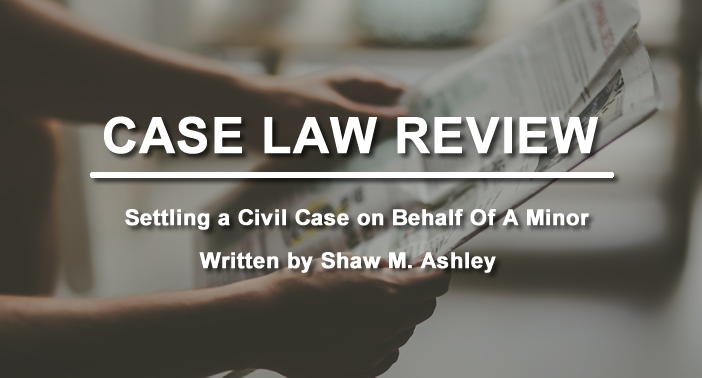Navigating legal claims on behalf of minors can be tricky. Any settlement to a civil action must be cloaked with judicial approval otherwise, it can be found to be non-binding on the minor. When courts review settlements with minors they are ensuring that the settlement is in the best interest of the minor. In settling a case with a minor, there are legal requirements depending on the amount of the settlement.
In a case where the settlement is $15,000 or less, the natural guardians (parents), or guardian may settle the claim without legal guardianship. In the event a natural guardian is the chosen guardian the natural guardian is barred from using the settlement proceeds for their own benefit, including for support of the minor.
In a case where the settlement is more than $15,000, a legal guardianship shall be required pursuant to Florida Statute Section 744.387. Courts can usually satisfy this by appointing a neutral legal guardian. A guardian ad litem is only discretionary when the settlement is more than $15,000 but less than $50,000. When a case has a total gross settlement that equals or exceeds $50,000 to multiple parties including a minor, and affects the interests of the minor, and if:
1. there is no court-appointed guardian of the minor, or
2. the court-appointed guardian has an interest adverse to the minor, or
3. the Court determines that representation of the minor’s interest is otherwise inadequate,
the Court must appoint a guardian ad litem. Any guardian of a minor must be represented by an attorney through the entire guardianship process.
In the event of a wrongful death claim, even if the gross settlement amount is less than $15,000, and even where the minor is not a party, but benefits by receiving a part of the settlement, the settlement must be approved by the Court.
While this is an overview of some of the necessities of settling claims with minors, it is important to seek competent legal representation when encountering claims with minors to better protect client interests.

